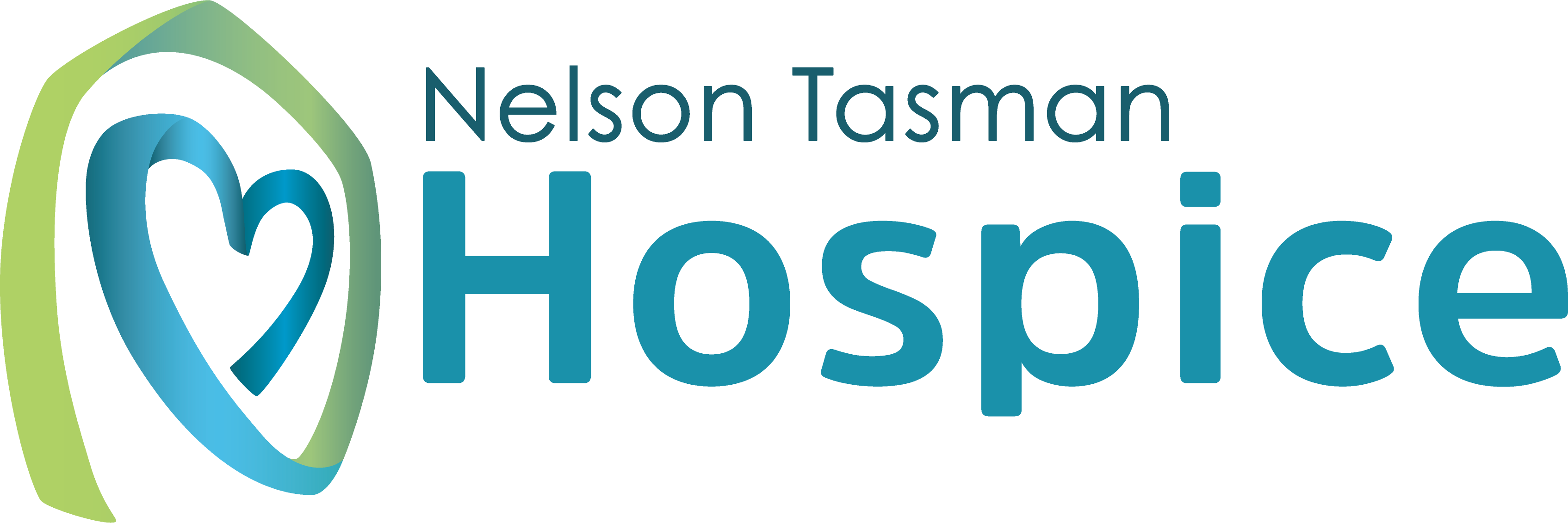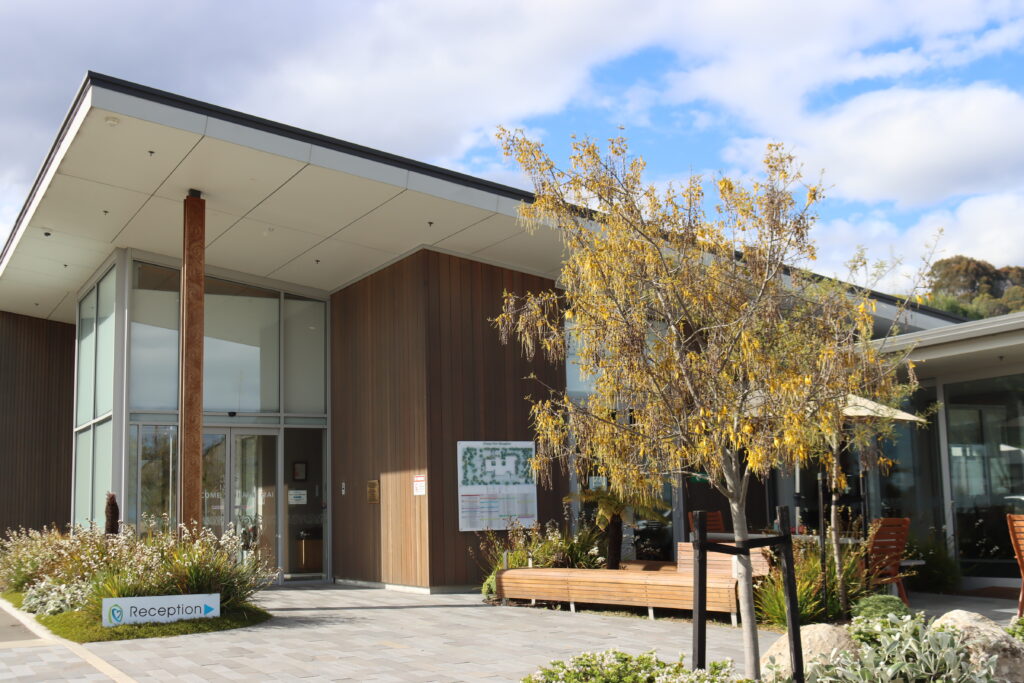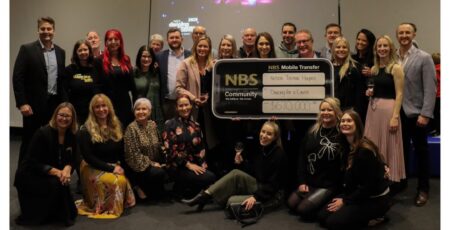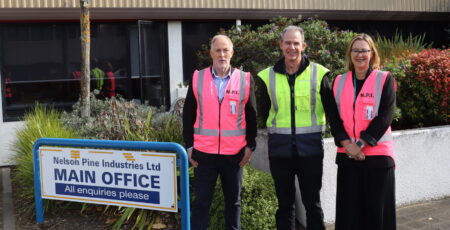The final fundraising total is in — and it’s nothing short of extraordinary. At a…
A time of incredible change – 5 years at Suffolk Road
This piece was written by Nelson Tasman Hospice’s Medical Director, Dr Jodie Battley
This May marked five years since Nelson Tasman Hospice (NTH) moved from Manuka Street to the new premises in Suffolk Road. This purpose-built facility, funded entirely from the generosity of our community, enabled the team to be under the same roof for the first time and provided a more patient-centered environment. Over the intervening five years, we have experienced an incredible amount of change requiring agility and adaptation.
In 2019 we were faced with the COVID pandemic, like all health services this brought a multitude of challenges, necessitating changes in the way we provided care to our community. Challenges in staffing meant a shift in focus to growing our own, upskilling the team, and smarter recruitment. Inpatient bed numbers were reduced, and remain so, to extend our reach into the community, where we know most patients want to be.
Navigating the legalisation of Assisted Dying in 2021 required purposeful communication of the role of Hospice, and collaborative engagement with the Assisted Dying service to ensure we are meeting the needs of patients no matter how they choose to die.
Demand for specialist palliative care continues to increase. Increased demand means increased operating cost. Funding for hospice services in New Zealand is already at crisis level. While the way forward with funding is not yet clear, our approach at NTH is that we must use this crisis to adapt, embrace new ways of operating, develop new collaborative partnerships, and look at different service design and sustainability models.
A significant focus is the ongoing refinement in our model of care. Over the last five years we have moved away from a generalist “care for all” model to the nationally endorsed specialist model that is dynamic, needs based, and is available no matter where the patient is located. This allows us to be more responsive to those with the most complex needs.
We also know that the impact of life-limiting illness is much broader than physical symptoms alone, it effects every aspect of a person’s life, emotionally, psychologically, spiritually, and socially. To this end, we have focused on upskilling and adequately resourcing our Allied Health team. We have also progressed the model of care provided by our clinical teams from multidisciplinary to interdisciplinary care. Rather than our team working separately, an interdisciplinary model aims to harmonise links between disciplines into a coordinated and coherent focus that ensures patients/whānau have the right input at the right time. This is consistent with Ngā Paerewa Health and Disability Services Standards (HDSS) 2021 that increasingly places the patient at the center of all health care.
In 2022, significant change to the sector came by way of national health and disability reforms, Pae Ora – aspiring to create a health provision that achieves equity of access, services, and outcomes for all New Zealanders. Equity of service in all its forms, is high on our priority of challenges to tackle. NTH is invested in recognising and responding to the current inequities in health care experienced by marginalised populations. In response to these inequities, NTH has adopted the Mauri Mate framework, ensuring a bicultural model remains fundamental to our way of working and that our responsibilities under Te Triti o Waitangi are central to all that we do. We have also continued to build on improving access to our service in rural and remote areas.
To gain a better understanding of the needs of our patients and whānau, we have updated our patient/whānau experience survey. Patient and carer reported outcome measures are also being embedded across the clinical service. We cannot assume we know what it is that patients and their whānau need, we must continue to listen and work harder to understand what our community want from their Hospice service. We will always have lessons to learn from the people we care for and are working to include advisory panels from our communities to help our future service development.
As we look into the future, NTH is going to need to be even more agile in the way that we provide clinical care. The demography of the people we will see in the next twenty years will be different. People will face life-limiting illnesses in greater numbers, at older age, with increased comorbidities, in the context of fewer family carers. This is also a generation who have not experienced death and dying. Part of our role is to understand and support these carers more actively.





Comments (0)